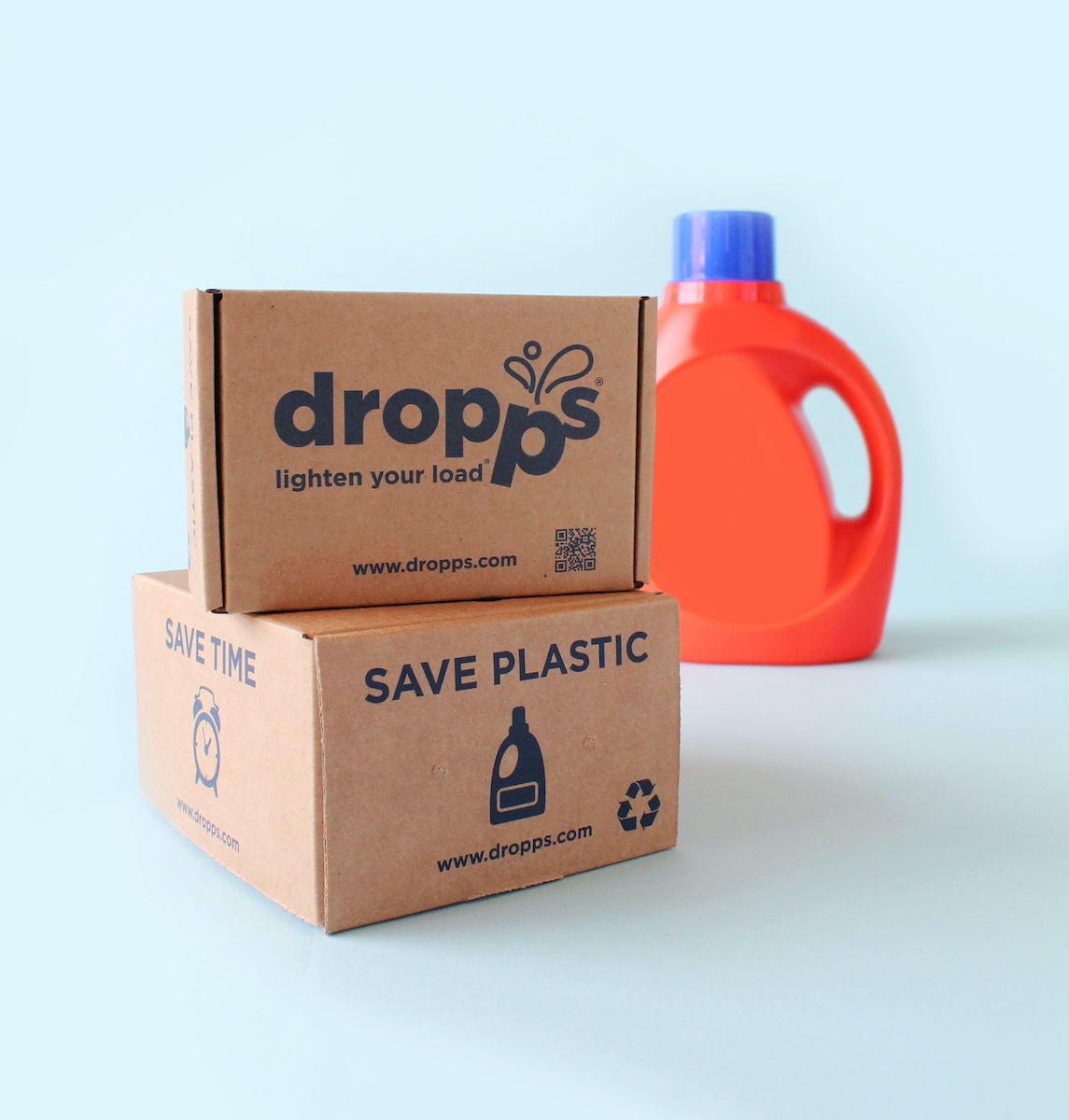Ranking #289, direct-to-consumer cleaning product company Dropps was named the fastest-growing private company based in Philadelphia on Inc. magazine’s annual Inc. 5000 list.
While the sustainability-minded company has seen growth over the past few years, founder and CEO Jonathan Propper attributes a recent bump in the soap business to more people staying at home because of the coronavirus pandemic.
“There was a big spike in March, and laundry [business] has leveled off to what normal levels are for customers, but dish soap keeps rising,” he told Technical.ly. “People aren’t dressing up as much being at home, so they’re wearing the same outfits all the time. But you’re cooking constantly. The dishwasher that may have run once every three days is running once a day now. That’s been a real paradigm shift.”
Propper said that growth during the pandemic came with a new strategy for employee health. Dropps, which snagged a $10 million investment from U.K. fund The Craftory in February, executed a move into a larger manufacturing and distribution space in Chicago before the pandemic, which has allowed for easier social distancing.
Dropps’ HQ is an office at Two Logan Square, but the company favored remote work before the pandemic started, which would later prove beneficial: Its company culture was already geared toward having employees meet once or twice a week at the most with the belief that their employees could work most efficiently from the comfort of their homes.
“From that standpoint, the transition was none,” said Propper, a Germantown native who is based now in Havertown. “We’re on Zoom, Google Hangouts and Slack. We’re pretty well-equipped to handle that change. But change when you start to add some [employees] because you’re not planning for where you are now, but where you will be six to 12 months away.” Dropps has added about 30 staffers since February, when it counted 40 full- and part-time employees across its Philly HQ as well as Chicago, New York and Austin centers.
A direct to consumer (DTC) business model has been a catalyst for Dropps’ success, per Propper. By shipping products directly to customers or making products accessible online via Amazon, Dropps has been able to connect with consumers who prefer to shop from home. That contingent of shoppers has only grown larger because of the pandemic.
“Ordering DTC is a trend that has been going on for a long time,” he said. “The pandemic just accelerated it because of the circumstances. It accelerated that trend and at the same time accelerated a lot of companies into bankruptcy that were holding on to physical stores.”

Propper said Dropps’ DTC model stemmed from the company’s need to differentiate itself from “big laundry,” or larger corporations with their own laundry and soap offerings. The company’s products had been available via traditional retail outlets prior to 2017 as the first laundry pods on the market, but once larger competitors brought their own pod products to market, they also controlled the retail experience. Rather than unsuccessfully competing with larger companies for space in the middle of shelves, Dropps decided to focus on what worked best for itself.
“How do you compete against big laundry?” Propper said. “You have to do things they’re not going to do. The buyers at big retailers are beholden to their big suppliers. We can just focus on the customer and it makes a big difference.” (That “do things they’re not going to do” mentality is also why you can spot the CEO in a bathtub or leading a laundry-themed exercise class on YouTube. No, passersby don’t recognize him from the ads these days — thanks to masks.)
Propper said he believes that online shopping and DTC experiences will remain popular even after the pandemic is over.
###
One hundred thirty-six Philly-area companies made this year’s Inc. 5000 list. A few notable tech mentions:
- STRATIS IoT — #662
- Houwzer — #730
- Tridiuum — #1,904
- Medical Guardian — #2,113
- Promptworks — #2,361
- Odessa — #3,589
- Seer Interactive — #3,781







